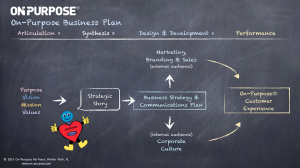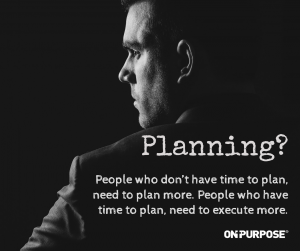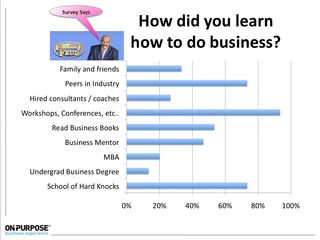Ask most business people what they need and the likely answer is “more money!” That’s like asking a football coach what he needs: “More points to win the games.” The real issue is What does it take to produce the points or the money?
Money (or points) is a self-deceiving answer or an easy target to articulate.
While Stephen Covey’s Habit #2 is “Begin with the end in mind,” it is as promoted just a beginning to the end. When we only have the “end in mind,” shortcuts are probably even ethical compromises.
The “Management by Objectives” movement has suffered many of these challenges. While never the intention of its creators, it became a rationale for sloppy management and the abdication of leadership and strategy.
Having worked as and with business owners for five decades (I started very early), I can tell you that money may be the obvious answer, but it is rarely the right answer.
Money is a specific commodity with well-defined functions, mostly as a measure.
Oddly, the lack of money in business may be more valuable than the money itself. It forces us to get real, to be creative, and to assess what’s working and what isn’t working. In the end, we’re apt to become better prepared and more capable of adding higher value and better services at a lower cost. Ergo, we make more money.
Being in business provokes us and pushes our buttons emotionally.
I’m not saying go out there and look to take stupid hits. On the contrary—avoid them, but some number of hits are inevitable. Rather than letting them take you down, let them build you up by learning, growing, and maturing.
In this On-Purpose Business Minute, I’m sharing with you the three most common attributes that attract money to businesses: law, order, and opportunity. If you’re a business owner or entrepreneur, this is a must see Minute.
Need some help with your business? On-Purpose Business Advisors has worked with start-ups and entrepreneurs to Fortune 100 CEOs. Email me to learn more.
Resource
Invest 9 minutes to learn about The On-Purpose Business Plan. This maps out the essential infrastructure to create sustainable growth and profitability.






